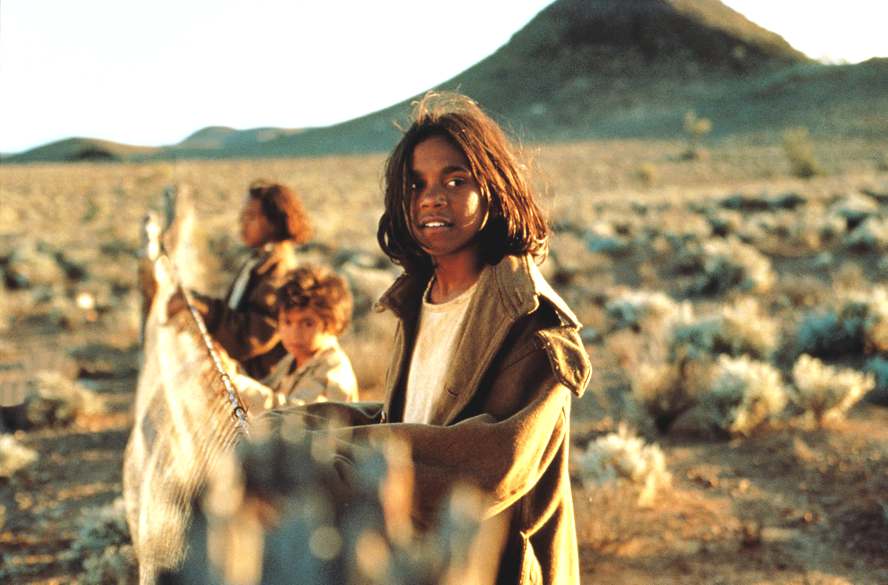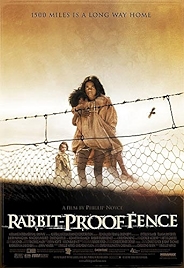A movie for every day of the year – a good one
14 July
Nazi eugenics law passed, 1933
On this day in 1933, in Germany, the Law for the Prevention of Genetically Diseased Offspring (Gesetz zur Verhütung erbkranken Nachwuchses) was put onto the statute books. It allowed for the compulsory sterilisation of anyone whose genetic disorders might be passed on to their children. Disorders originally included manic-depressive insanity and alcoholism, as well as more usual hereditary conditions, but were eventually widened out to include homosexuality, idleness and dissidence. Genetic health was decided in a series of courts set up expressly for the purpose, with the Nazis taking their cues from the work done in California, funded by the Rockefeller foundation and rooted in the writings of Sir Francis Galton, a cousin and enthusiastic interpreter of Charles Darwin.
Rabbit-Proof Fence (2002, dir: Philip Noyce)
A simple tale with a jaw-dropping true story behind it, Rabbit-Proof Fence puts a human face on the practice by the Australian government in the 1930s of separating mixed-race aborigine children from their families. The practice went on until the 1970s, we’re told by an intertitle card that comes up at the end. What we’ve seen up till then is the inhuman consequences of a wrong-headed law that sought to rescue the children of what were seen as transracial couplings from the “too black” families now raising them. To steal children from their mothers, in other words.
The curtain rises just as Molly (Everlyn Sampi), Daisy (Tianna Sansbury) and Gracie (Laura Monaghan) – their poor but happy existence already established – are about to be forcefully removed from their families and taken to a strict school where they will be educated to the appropriate level for their social station (a servant or factory worker). The girls and their families resist but are overwhelmed by the authorities. Once at the brisk but not cruel school/internment camp, they don’t like the regime of enforced English-speaking and heavy manners, and as soon as possible they skedaddle, are captured, and escape again, deciding that they’re going to walk the 1,500 miles back home by following the fence that keeps the all-devouring rabbit separate from land earmarked for farming. If you want to read an allegorical intent into the fence – the rabbits are the marauding incomer, the fence a civilising barrier – the film isn’t going to high-five your efforts. It’s a remarkably straight telling of a simple and powerful story. But simple doesn’t mean dumb.
The performances by its non-actor stars deliver the emotional heft, while Kenneth Branagh, arguably faintly overdoing it with the Nazi mannerisms, delivers recognisability – and a name for the marquee – as the government official running the relocation department who now wants those girls found.
Director Philip Noyce is a master of mood (The Quiet American) and a dab hand at the action thriller (Clear and Present Danger) and folds both together with the sort of retina-searing visuals that the Outback is famous for, thanks here going to legendary cinematographer Christopher Doyle. Doyle nods occasionally towards Nicolas Roeg’s Walkabout. That Roeg connection is reinforced by the presence of David Gulpilil, as the Aborigine tracker half-heartedly helping the white guys find the escaped girls, whose debut was in Roeg’s film, when he was a young Aborigine man helping the white girls get back home.
So, some symmetry, a lot of beauty and a fair bit of believable acting, tenderly nurtured by Noyce. The result is a film with a lot of heart and a hard message, delivered with a lot of style and ending with a lump-in-the-throat moment as the story from 70 years before is suddenly brought bang up to date.
Why Watch?
- A shocking true story
- Christopher Doyle’s cinematography
- Peter Gabriel’s ambient soundtrack
- Christine Olsen’s subtle but ballsy screenplay
Rabbit-Proof Fence – Watch it now at Amazon
I am an Amazon affiliate
© Steve Morrissey 2014

